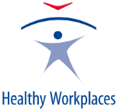22/02/2024
Everything there is to know about digital platform work, the first priority area of the ‘Safe and healthy work in the digital age’ campaign

Having food delivered right to your doorstep, building a website programmed remotely by a professional, getting a taxi in minutes through an app or finding a technician online to repair your broken boiler are activities facilitated by digital labour platforms. Over 11 million people in the EU earn part or all of their income this way, a relatively new but exponentially growing way of work that offers many advantages but also presents notable risks and challenges. Platform work is the first priority area of the 2023-25 Healthy Workplaces Campaign and EU-OSHA will dedicate the next months to raising awareness and disseminating resources on the subject.
What is
?
Digital platform work consists of all paid labour provided through, on or mediated by an online platform, an online space that can be accessed from an app on a mobile phone, computer or other devices with an internet connection. While the tasks executed by the workers are always organised online, they can be performed virtually or in the physical world. These chores are usually managed by algorithms, although the level of control exercised by them varies. Currently, over 500 digital labour platforms are active in the EU.
While digital platform work promotes participation in the labour market, helps workers to develop skills and work experience and offers increased flexibility, it also contains additional risks for occupational safety and health (OSH) related to the way that the platforms are designed and managed such as lack of transparency of the algorithms, unclear employment status and isolation.
Platform workers: characteristics and sectors
Platform workers have very diverse profiles and occupations. While men are predominant, work facilitated by digital platforms is becoming less gender segregated, and younger people (16–34-year-olds) are prevalent. Migrant workers are overrepresented in lower-skilled platform work, as it may be considered as an alternative to informal work.
Platform work extends to sectors other than food delivery and transportation. The most common industries using this model are ICT, finance, scientific and technical services, followed by commerce, transport and logistics, accommodation and food as well as administration assistance and support. Other popular activities are handiwork and house services, parcel delivery, remote programming, translation, graphic design, online content review and health and social care, among many others.
Ensuring digital platform workers’ safety at work
Coordinated action is needed on the part of all involved stakeholders to prevent OSH risks related to this way of working: the platforms themselves, as well as policymakers, social partners and platform workers.
Even though digital platform work is a relatively recent phenomenon, several initiatives and legislation have been introduced in different countries to regulate it, for instance the Spanish ‘riders’ law, that establishes a right to and the presumption of a dependent employment relationship for digital platform workers working mostly in the delivery sector. Moreover, the Bologna charter, with a local scope, had a major role in raising awareness on risks related to platform work, and inspired changes in the legal framework to introduce rights, including that to algorithmic transparency, for platform workers in Italy. In France several pieces of legislation have been introduced over the last few years to regulate aspects of platform work. Several other instances of successful cooperation between labour and social security inspectorates and OSH authorities at national level have been reported.
- Check out all content related to this priority area.
- Discover the safety and health insights for digital platform work in 13 languages in this practical info sheet.
- Learn more about initiatives and legislation regulating platform work in this policy brief.
- #EUhealthyworkplaces on Facebook, X and LinkedIn.


